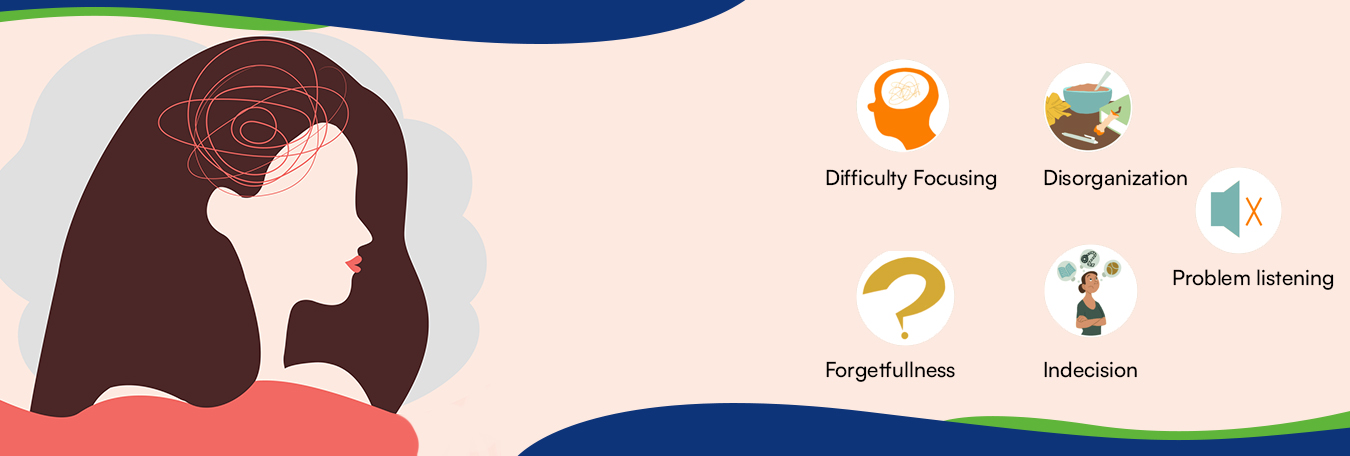Is It ADHD? 8 Subtle Signs In Adults

Table of Contents
Difficulty Focusing and Maintaining Attention
Many adults with ADHD struggle with focus and attention, often manifesting in subtle ways. These challenges significantly impact daily life, impacting productivity and relationships.
Procrastination and Task Switching
Difficulty prioritizing and switching between tasks is a common hallmark of ADHD. This leads to a cycle of procrastination and unfinished projects.
- Examples of procrastination: Putting off essential tasks until the last minute, even when aware of the consequences. Repeatedly starting new tasks before finishing existing ones.
- Frequent task-switching: Jumping between different tasks without completing any, leading to feelings of overwhelm and a sense of being unproductive.
- Feeling overwhelmed by simple tasks: Even seemingly straightforward tasks can feel insurmountable, leading to avoidance and further procrastination.
These behaviors are often connected to attention deficit and struggles with focus problems and difficulty concentrating.
Mental Clutter and Racing Thoughts
The experience of a busy mind is common in ADHD. This "mental clutter" involves difficulty filtering thoughts, leading to challenges with concentration and focus.
- Racing thoughts preventing sleep: A constant stream of thoughts makes it difficult to quiet the mind before bed, resulting in sleep disturbances.
- Feeling overwhelmed by information: Processing large amounts of information, even simple instructions, can feel overwhelming and confusing.
- Difficulty filtering out distractions: Minor distractions can significantly disrupt concentration, making it hard to remain focused on a single task.
This cognitive overload is often associated with inattentive ADHD and contributes significantly to mental fatigue.
Challenges with Organization and Time Management
Organization and time management are often significantly impacted by ADHD, leading to persistent challenges in daily life.
Chronic Disorganization
Many adults with ADHD experience chronic disorganization, affecting various aspects of their lives.
- Losing things frequently: Misplacing keys, wallets, or important documents is a common occurrence.
- Messy workspaces: A cluttered workspace reflects the internal disorganization, impacting productivity and focus.
- Difficulty meeting deadlines: Poor time management skills contribute to consistently missing deadlines and feeling constantly behind schedule.
These difficulties point to poor time management and reflect executive function difficulties which are a core feature of ADHD.
Procrastination and Missed Deadlines
Procrastination in adults with ADHD often stems from difficulties with planning and initiating tasks. This isn't simply laziness; it's a struggle with executive function.
- Consistently missing deadlines: Despite intentions, deadlines are frequently missed due to difficulty starting and prioritizing tasks.
- Starting projects at the last minute: A pattern of leaving tasks until the last possible moment creates added stress and reduces the quality of work.
- Feeling overwhelmed by large tasks: Breaking down large tasks into smaller, manageable steps is challenging, leading to avoidance and procrastination.
This "time blindness" and difficulty with delayed gratification are often indicative of impulsive behavior related to ADHD.
Emotional Dysregulation and Impulsivity
ADHD is often associated with challenges in managing emotions and impulses. These difficulties can significantly impact personal relationships and overall well-being.
Mood Swings and Emotional Reactivity
Rapid mood shifts and increased irritability are common in adults with ADHD.
- Sudden anger outbursts: Emotions can escalate quickly, leading to unexpected and sometimes intense displays of anger.
- Difficulty controlling emotions: Managing strong emotions, both positive and negative, can be particularly challenging.
- Frequent mood changes: Experiencing rapid and unpredictable shifts in mood throughout the day.
This emotional lability and irritability often lead to strained relationships and difficulties in maintaining emotional stability.
Impulsive Decisions and Risk-Taking Behaviors
Impulsive actions, often without considering the consequences, can be a significant indicator of ADHD.
- Making impulsive purchases: Spontaneous spending sprees without considering the financial implications.
- Engaging in risky behaviors: Taking unnecessary risks without fully evaluating the potential consequences.
- Difficulty considering long-term consequences: Focusing on immediate gratification rather than long-term planning and consequences.
This hyperactivity, impulsivity, and lack of inhibition are often misunderstood aspects of ADHD.
Restlessness and Hyperactivity (Often Subtle in Adults)
While hyperactivity is often more prominent in children with ADHD, adults may experience subtle forms of restlessness and difficulty relaxing.
Internal Restlessness and Fidgeting
Adults with ADHD may experience a constant feeling of internal unease, often manifesting as physical restlessness.
- Fidgeting: A need to constantly move, tap fingers, or shift positions.
- Difficulty sitting still for extended periods: Feeling uncomfortable and restless when required to sit still for prolonged periods, such as during meetings or lectures.
- Pacing: Walking back and forth to relieve feelings of restlessness.
This internal restlessness reflects an underlying need for movement and stimulation.
Difficulty Relaxing and Unwinding
Challenges with relaxation and winding down after a busy day are common symptoms.
- Difficulty sleeping: Insomnia or difficulty falling asleep due to racing thoughts or restlessness.
- Feeling constantly wired: Experiencing a persistent sense of being "wired" or unable to fully relax, even when tired.
- Struggling to quiet the mind: Difficulty silencing the internal dialogue and quieting racing thoughts before sleep.
Sleep disturbances and anxiety are common complaints related to this aspect of ADHD.
Conclusion
This article highlighted eight subtle signs of ADHD in adults: difficulty focusing, challenges with organization, emotional dysregulation, impulsivity, and restlessness. Remember, these are just indicators, and self-diagnosis is not sufficient. If you recognize yourself in many of these descriptions, don't hesitate to seek a professional evaluation. Taking the first step towards understanding and managing ADHD can significantly improve your quality of life. Learn more about ADHD diagnosis and treatment options today! Consult your doctor or a mental health professional for a proper assessment and guidance. Is it ADHD? Finding out is the first step towards effective management and a better you.

Featured Posts
-
 Capital Summertime Ball 2025 Tickets Your Complete Guide
Apr 29, 2025
Capital Summertime Ball 2025 Tickets Your Complete Guide
Apr 29, 2025 -
 Huaweis New Ai Chip A Challenger To Nvidias Dominance
Apr 29, 2025
Huaweis New Ai Chip A Challenger To Nvidias Dominance
Apr 29, 2025 -
 Ray Epps Defamation Lawsuit Against Fox News January 6th Allegations
Apr 29, 2025
Ray Epps Defamation Lawsuit Against Fox News January 6th Allegations
Apr 29, 2025 -
 Lynas Rare Earths Texas Refinery Faces Cost Overruns Seeks Us Funding
Apr 29, 2025
Lynas Rare Earths Texas Refinery Faces Cost Overruns Seeks Us Funding
Apr 29, 2025 -
 2 5 Trillion Vanished The 2024 Decline Of The Magnificent Seven Stocks
Apr 29, 2025
2 5 Trillion Vanished The 2024 Decline Of The Magnificent Seven Stocks
Apr 29, 2025
